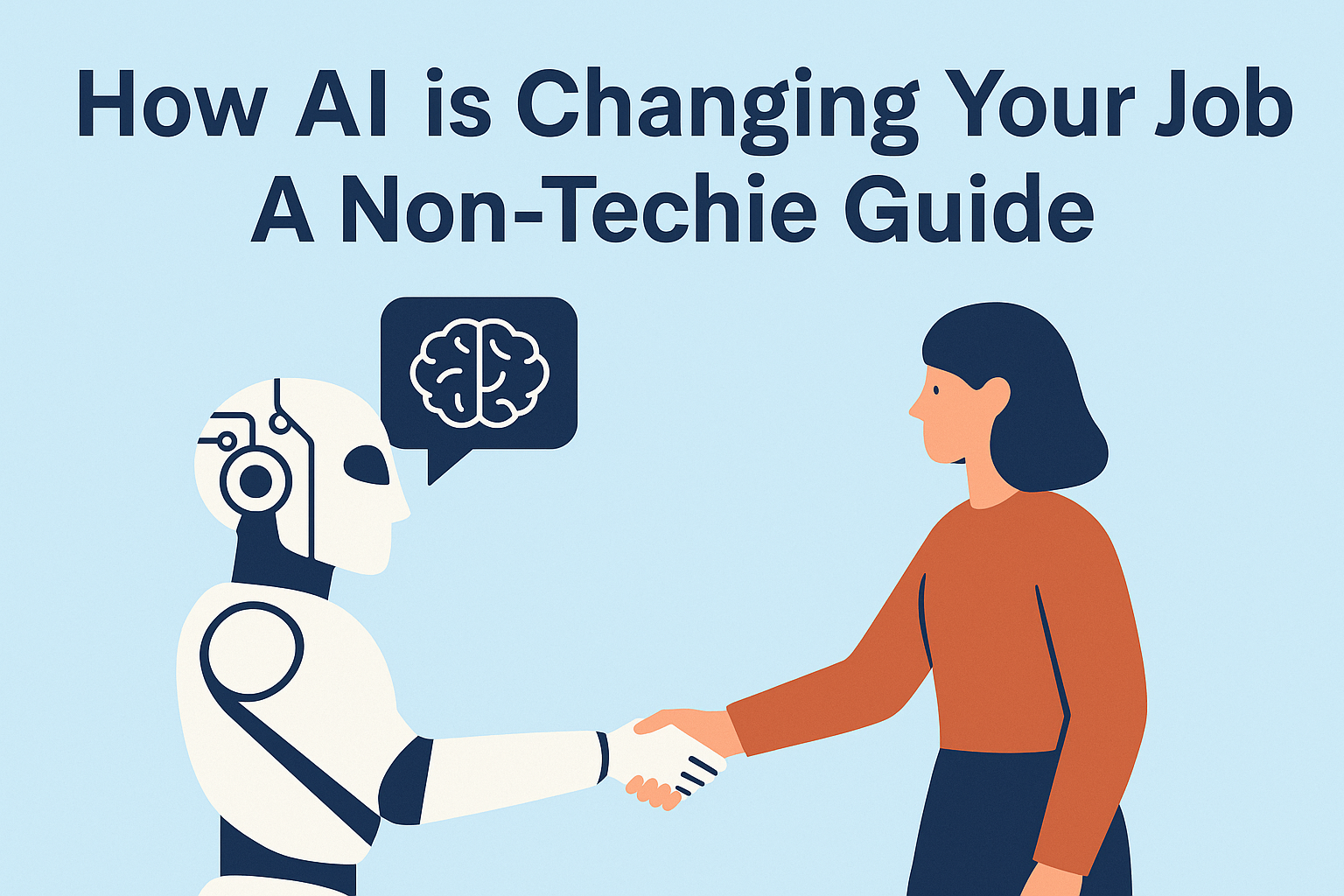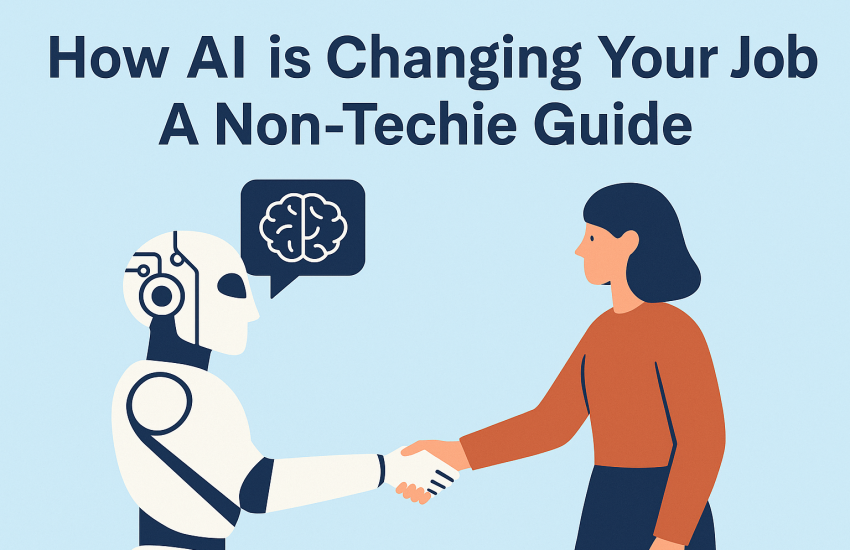
How AI is Changing the Future of Work for Everyday Professionals
Artificial Intelligence (AI) is no longer just a buzzword—it’s an everyday reality reshaping the way we work. From automated emails to smart recommendations, AI is already embedded in many of our professional tasks. If you’re not a tech expert, don’t worry. This guide will help you understand how AI is impacting jobs across industries and what you can do to stay relevant in the age of intelligent machines.
1. What is AI and Why It Matters
AI, or artificial intelligence, refers to computer systems that mimic human intelligence to perform tasks like learning, decision-making, and problem-solving. It powers everything from voice assistants like Siri to predictive text and fraud detection systems.
2. Real-World Examples of AI in the Workplace
AI is quietly working behind the scenes in almost every industry:
- Retail: Personalized shopping recommendations
- Healthcare: AI-powered diagnostics and virtual health assistants
- Finance: Fraud detection and robo-advisors
- Marketing: Automated ad targeting and customer behavior analysis
- Human Resources: AI tools for screening resumes and scheduling interviews
3. Jobs Most Affected by AI
Not all jobs are at risk, but some will change significantly:
- Repetitive or Rule-Based Roles: Data entry, telemarketing, and routine administrative work are being automated.
- Customer Support: Chatbots and virtual agents handle common queries.
- Transportation & Logistics: Autonomous vehicles and predictive logistics are reshaping roles.
However, roles requiring empathy, creativity, and critical thinking are safer. These include therapists, teachers, managers, and designers.
4. How to Adapt: Skills You Need in the AI Age
To future-proof your career, consider developing the following skills:
- Emotional Intelligence: Machines can’t replace human connection.
- Creativity: Think outside the box and offer novel solutions.
- Tech Literacy: You don’t need to code, but understanding basic AI tools is vital.
- Critical Thinking: Ability to make decisions that AI can’t.
Online courses, webinars, and self-learning platforms like Coursera or LinkedIn Learning can help you upskill.
5. Working With AI, Not Against It
AI is not your enemy—it’s your assistant. Here’s how to integrate it into your workflow:
- Use AI tools like Grammarly, Jasper, or Notion AI for productivity
- Delegate repetitive tasks to bots
- Use AI-driven data insights to make smarter decisions
Companies want humans to handle strategy while machines handle repetition.
6. Ethics and Job Security: What You Should Know
With AI comes responsibility. Ethical AI use means ensuring:
- Transparency in how decisions are made
- Fairness in hiring and data use
- Data privacy and protection
Companies and governments must create guidelines, but as a worker, stay informed and vocal about ethical concerns.
Conclusion
The future of work is already here. AI is transforming jobs—not by replacing everyone—but by enhancing how we work. If you understand its impact, stay curious, and continuously adapt, AI will be your biggest career ally.

